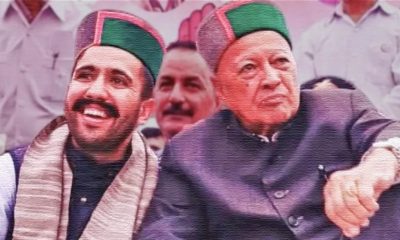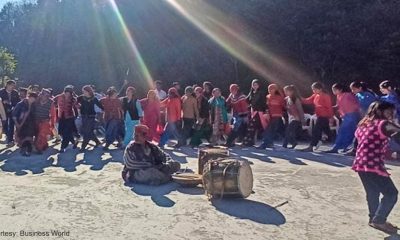Law & Justice
Majesty of The Court and Sexual Harassment
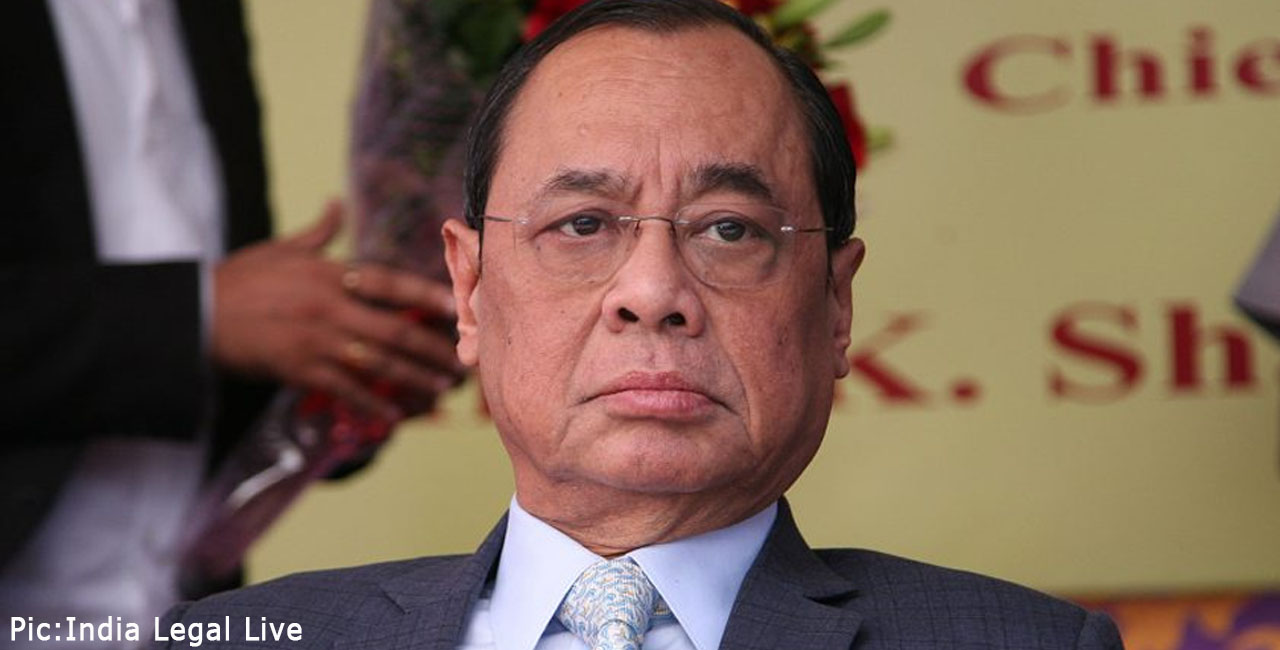
(The post was first published in https://lawumbrella.wordpress.com/ )
The first principle of natural justice consists of the rule against bias or interest and is based on three maxims:
- No man shall be a judge in his own cause
- Justice should not only be done but manifestly and undoubtedly be seen to be done and
- Judges, like Caesar’s wife, should be above suspicion
Having the above cardinal principles in mind, it is sad to see what has happened in the Hon’ble Apex Court today. The Court assembled to hear a matter involving sexual harassment charges against the Chief Justice. The three-judge bench was surprisingly headed by the Chief Justice himself. The matter was listed on the pretext that issues of grave public importance concerning ‘independence of the judiciary” were involved. Eventually, an order was passed which was only signed by two judges, excluding the Chief, even though he was a part of the bench. The order advised media to show restraint. (which amounts to a partial gag). The order also stated that no action on the judicial side would be taken at this moment, ironically the order itself is a judicial act.
There seems to be a concern that ‘faith of the people in the institution’ which is of paramount importance is under threat due to the scandalous allegations made against a sitting CJI. However, it is the firm opinion of the author that the Hon’ble Chief Justice is not the institution, nor is any individual judge or a lawyer. The institution is standing on the values which have evolved through hundreds of years of evolution and practice.
In the present matter what can save the dignity of the office is a meticulous, transparent and impartial inquiry which can act as a disinfectant to such allegations. The use of the judicial/constitutional office to term the allegations as outrightly scandalous, and also taking up the matter on the judicial side on an urgent basis is highly questionable. Perhaps the best possible recourse would have been to follow the established procedure which is applied in regular sexual assault complaints. The law and procedure for sexual harassment at the workplace are well established, and the law is the same for all. A strong presumption is on the word of women in such cases and the complaints have to be taken seriously.
Law is a noble profession, the practitioners have to lead by example and have to be ready for the strongest of tests in the face of such allegations.
Having said that, it’s my duty to remind the readers of one more cardinal principle before they go through the factual matrix, that ‘a man is innocent until proven guilty‘,.
FACTs
In an affidavit addressed to the Supreme Court, the former Court officer has alleged that following the sexual assault incident, she as unceremoniously terminated from her post. Moreover, she alleges that the trail of harassment has followed since her termination, culminating in a frivolous FIR filed in March this year against her and her family.
Proceedings of the bench as reported by journalists from within the courtroom;
CJI Bench assembles.
CJI speaking about criminal cases against the lady who alleged sexual harassment against him “This is unbelievable. I should not stoop low even in denying it.” A bank balance of Rs. 6 lakh 80 thousand is all I have as bank balance”, CJI Ranjan Gogoi.
They cannot catch me on money, so they have brought up this. This is the reward a CJI gets after 20 years and a bank balance of Rs. 6,80,000. Independence of judiciary is under very very serious threat. I had to tell this from the judicial seat”, CJI Ranjan Gogoi.
“Less than 10 hours notice was given to me to respond. What I want to tell citizens is that judiciary of this country is under serious threat”, CJI Ranjan Gogoi.
“I will sit on this Bench and discharge my duties without fear and favour till my tenure is over”, CJI Ranjan Gogoi.
SG Tushar Mehta says it should be taken very very seriously.
“Things have gone too far. Judiciary cannot be made scapegoat”, CJI Ranjan Gogoi.
“Rubbish being published”, SG Tushar Mehta.
I am an officer of this Court, I was also under attack for defending the government, AG KK Venugopal.
Why would any sane person want to become a judge, reputation is all that we have. And that is also under attack, CJI Ranjan Gogoi.
We are not passing any judicial order at this moment. We, however, ask media to show restraint, responsibility and wisdom so that independence of the judiciary is not affected by baseless allegations, Supreme Court.
Solicitor General Tushar Mehta prods the Bench to register a complaint in his name but court refrains as of now.
Bench rises
In a response made today, the Supreme Court Secretary General’s office the Court stated;
“The allegations regarding 11 October 2018, as well as other allegations as can be discerned from your emails, are completely and absolutely false and scurrilous and are totally denied.
The registry of the Supreme Court of India had posted this individual, who was employed at a level equal to a lower division clerk, in a routine manner at the residence office of the Hon’ble The Chief Justice of India, where in addition to her, there were several other employees also working as a part of the home office of the CJI, and at any given point of time, there were atleast 5-6 other present as a part of the home office of the CJI.
She worked as part of the home office of the Chief Justice of India only for a short period, and as informed, given the nature of her duties, she had no occasion to interact directly with the Chief Justice of India.Ms. ABCDEFGHI was dismissed from service as per procedure.
Her brother-in-law was terminated as he was only a temporary employee at that stage and his performance and conduct was reported not to be satisfactory. It is not open to anyone to make unsolicited calls or uninvited approaches to the office of the Chief Justice of India, especially an employee who has already been dismissed, and who previously engaged in inappropriate conduct.
Since unsolicited calls and messages were received by the office of the CJI, a complaint had been made by the registry of the Supreme Court. Whether departmental enquiry was initiated against any member of her family by the Delhi Police, is something which the Delhi Police authorities might have done as per rules. The motive behind these false and scurrilous allegations is obviously mischievous.
As referred to in your letter, there is a criminal case pending against her, where very serious allegation has been made, of her having taken a bribe to assure employment in the Supreme Court of India. It has been learnt that there is an application for the cancellation of bail earlier granted to her, which is listed for hearing on 20.04.2019 on account of her having made threats to the complainant of the said case.
It would be extremely relevant to mention that the concerned individual and her family have criminal antecedents. There were previously 2 criminal cases which had been instituted against her i.e. (1) FIR No. 484/11, P.S. Hari Nagar u/s 324, 341, 354, 506, 34 IPC; (2) DD No. 30A dated 05.03.2012 u/s 107/150, IPC, P.S. Hari Nagar, SEM Court, Moti Nagar. Throughout her employment in the Supreme Court, whether during her posting at home office of the CJI, or even subsequently after she was transferred out of the home office of the Chief Justice of India, or at the time she was terminated, or even thereafter, there were no complaints made by her of the nature now being alleged. It is not only mischievous but a complete afterthought of her to make these false allegations at this time.
In fact, on the other hand, in the interregnum, there were complaints made against her by the secretariat of the Chief Justice of India, to the Secretary General on account of her inappropriate behavior, and this resulted in her transfer out of the home office of the CJI.
Apart from the misconduct formally recorded in the complaint by the secretariat, there were other counts of misconduct on her part. It appears that these false allegations are being made as a pressure tactic to somehow come out of the various proceedings, which have been initiated in law, against her and her family, for their own wrong doings.
It is also very possible that there are mischievous forces behind all this, with an intention to malign the institution. Secretary General, Supreme Court of India”
Complaint Letter and Sworn Affidavit that the complainant has sent to the Judges of the Supreme Court of India discloses that (DISCLAIMER: Name of the woman has been changed to “X” to protect her privacy);
| May 2014 | – X, whose husband is a head constable in the Delhi Police and mother of a 7-year-old daughter, is appointed Junior Court Assistant in the Supreme Court of India. – She is posted to the Legislation section of the Supreme Court Library – Her job involves typing and documentation work in the library. – During court hours she is sent to different courts to help Court Masters with arranging books and judgments during court proceedings and answering the intercom. |
| 2015 | X enrols for an LLB degree in CCS University, Meerut while she is employed. |
| May 28, 2015 | X receives her Annual Confidential Report (ACR) evaluating her work between May 2014 – March 21, 2015. Her grading is “Good” |
| 2015 | X is assigned to work in Justice Vikramjit Sen’s court for close to 10 months |
| August 5, 2016 | X receives her second ACR for the period April 1, 2015 – March 21, 2016. Her grading “very good” |
| October 2016 | X is assigned to work as Junior Court Assistant in Justice Ranjan Gogoi’s court, since his regular junior court assistant had gone on leave. Her work involves providing support to Court Masters during court proceedings. |
| 2016-2018 | X continues to work in Justice Gogoi’s court |
| January 2018 | X does not go to Justice Gogoi court for 10 days because she was preparing for her LLB exams. She did this with permission from her immediate boss. She takes a few days off to appear for her LLB exams. |
| January 2018 | – X rejoins court work. – Justice Gogoi calls X to his chamber in the Supreme Court for the first time. He tells her she was good at her work in getting citations; he enquires about her areas of interest and her family; and he asks if she would be able to do research. He also asks how she balances her professional and private life. |
| January 2018 – May 2018 | – Justice Gogoi assigns work that is of a more responsible nature, not part of her mandate, and for which she has no training – that of preparing case summaries. Justice Gogoi would tell her to speak her mind and not worry |
| May 2018 | – Just before court vacations, Justice Gogoi invites her to a staff lunch on May 19, 2018. – X attends the lunch |
| May 19, 2018 to July 1, 2018 | Summer vacations in the Supreme Court – Justice Gogoi summons her to his residence from the library landline. He informs her of a book launch at the Constitution Club that he insists she should attend along with her husband – Justice Gogoi calls her again a few days later insisting that she attend the book launch and to bring her husband along as the programme would end late – X and her husband attend the book launch |
| July 2, 2018 | – The Supreme Court reopens after the summer vacations – Justice Gogoi calls all his staff for a meeting – Justice Gogoi specifically asks X about her vacations, her daughter and the work assigned to her |
| July 2018 | – Justice Gogoi continues to assign case briefs to her – On one occasion Justice Gogoi gives X some sweets to give to her daughter – He asks her to bring her husband to meet him on July 31, 2018 |
| July 31, 2018 | – X’s husband comes to meet Justice Gogoi, following the judge’s request. – Justice Gogoi spends two hours with both of them. – Justice Gogoi tells her husband in Hindi that the work X is doing is well above her rank (jis rank par kaam kar rahi hain, is level se bada upar hain) – He also tells the husband that if X works hard, she will reach high in her profession (agar mehnat kare to bohot upar pahunch sakti hain) – Justice Gogoi also tells both of them to approach him if they have any difficulties |
| August 2018 | – Justice Gogoi asks X about her exam results and compliments her on her marks – He says she should be doing something better than “pulling out books” as “any illiterate person can pull out books from the court” |
| August 2018 | – Justice Gogoi summons X to his chamber in court; expresses irritation that she had not taken his calls – When she says that she had not received any calls from him, he demands to see her phone to check her call logs. She explains that she had blocked unknown numbers. – He crosschecks by calling her number and when he sees the call does not go through, he asks her to save his number. She also changes the setting on her phone – He gives her another number which he says is his private number and only another member of this trusted staff has, and yet another number which he says is to be used for WhatsApp communication – Justice Gogoi says he will be using these numbers to communicate confidential information and that she should not receive calls on this number in front of her family |
| August 2018 | – Justice Gogoi continues to summon X to his chamber in the Supreme Court and to assign work to her. – He would WhatsApp and call several times during the day, during non-court hours and late evenings – He instructed her to call him in the morning from her home to find out if he needed books and other materials to be kept ready for him at the Supreme Court chamber |
| August 2018 | – Justice Gogoi calls X to his chamber where he informs her that he will soon be the Chief Justice of India and that he needs staff that he can trust and are competent. – He says he needs someone to work out of his residence office and informs her immediate superior – Justice Gogoi instructs X to speak to his Private Personal Secretary, HK Juneja to discuss the modalities of the transfer – Juneja discusses with X the need to maintain confidentiality at all times – Juneja also mentions that she is the youngest employee to be appointed to the post – She expresses her gratitude – Juneja also assures her that her work timings will remain the same as before viz 10am to 5pm |
| August 11, 2018 onwards | – X is posted at the residence office of Justice Ranjan Gogoi at 10, Tees January Marg, New Delhi and the staff member who was already at the office is transferred back to the Supreme Court – X senses some resentment for being a junior employee with no knowledge of shorthand like the other staff |
| August 27, 2018 | – The official transfer order regarding X’s transfer to Justice Gogoi’s residence office is issued. – Even though the office timings were initially between 9 am and 5 pm, X is required to arrive at 8 am – She also finds that the two officers who were on the morning shift at the residence office are shifted to the afternoon or evening shift. – A staff member with the ability to take shorthand, assigned to train X, is also moved to the afternoon shift at 3 pm. – Justice Gogoi’s timings are 8am-9: 45 am at the residence office in the morning, when X is summoned several times. He would return from the Supreme Court at 4:30 or 5 pm. – During this period Justice Gogoi calls X to his residence office room and instructs her to send him a “Good Morning” message every morning on WhatsApp – Even though she finds it “strange”, she starts messaging him every morning at around 6-6: 30 am – He also asks her to inform him on WhatsApp that she had reached home after work. – On days that she forgets, he sends a “?” message and seeks an explanation the following day. – He comments that he has noticed on WhatsApp that she is up at 12 midnight. – Every morning, on reporting to work, Justice Gogoi asks to see her phone and instructs her to delete all message from him – She assumes this is the norm, since the work she does with the judge is confidential – On one occasion, he tells X she is one among his three assets that include his wife and daughter. – “You will be the third person I will be inviting,” he says of his oath-taking ceremony for becoming the Chief Justice of India – He asks her to work diligently without taking any leave as he is due to become the Chief Justice – He arranges a car assigned to NALSA to drop her off at the nearest metro station when she mentions problems at home due to long work hours – Justice Gogoi repeatedly tells X that he is in a position to help her – He offers to provide her accommodation close to his residence so that she is readily available for work – She declines his offer and informs him that she is comfortable with her present accommodation – She informs the judge of her disabled brother in- law in need of work – Justice Gogoi promises to help once he is Chief Justice – He tells X as Chief Justice he will be able to use his discretionary quota to make appointments to the Supreme Court registry |
| October 2018 | Preparations for Justice Gogoi’s oath-taking ceremony as Chief Justice of India – X is asked to work on preparing for a celebratory party – X’s husband is invited to the party |
| October 2, 2018 | Party at Justice Gogoi’s residence – X meets Justice Gogoi’s daughter and son-in-law. Takes photo. |
| October 2018 | Justice Gogoi’s swearing in ceremony – X and her husband are officially invited – She is one among a select few whose spouses are invited to the ceremony |
| October 10, 2018 | – The Chief Justice calls her to his room; asks her to sit on a chair across his desk and tells her that her brother in-law had been appointed even though he was found to be medically unfit. – X expresses her gratitude |
| October 10, 2018 | – It is the first day of Navaratri and X is not in her standard black and white uniform but in coloured clothes – Chief Justice tells X, “You are looking pretty good today” Justice Gogoi is now Chief Justice of India – Chief Justice Gogoi asks for her brother in-law’s resume – A few days later, he is interviewed and appointed court attendant through the Chief Justice’s discretionary quota. |
| October 10, 2018 | – The Chief Justice asks her at this stage: – “What can you do for me?” – X says she is grateful, and her whole family is grateful |
| October 10, 2018 | – The Chief Justice, who is standing next to her, places his hand at the back of her head and slides it along her back to her hipline till her lower back – X stiffens; the Chief Justice senses her resistance, pulls her cheeks and says he behave like his with his daughter too – The Chief Justice again asks X what she can do for him. She repeats she is grateful – “No, no I know you will not speak, so write it down and show me,” he says – The Chief Justice then continues to assign official work to her – X is stunned at the Chief Justice’s behaviour but carries on with her work |
| October 11, 2018 | – In the morning, the Chief Justice summons X to his residence office. – She stands by the door with her notepad and pen as is the norm – Chief Justice asks her to sit across the desk from him – He comments that her whole family must be happy with the brother-in-law’s appointment – He says “If you put on weight, you will look good” – The Chief Justice offers her sweets that are in his room and says it is she who should be giving him sweets because of the brother-in-law’s job |
| October 11, 2018 | – The Chief Justice of India again asks A: “So what can you do for me?” – He asks her if she had written down anything about what she could do for him. – She remembers writing the following: “Your Lordship is a blessing to me; words cannot describe how thankful I am; I will always be grateful for all that Your Lordship is doing for me; my entire family is grateful; I am grateful for your support.” |
| October 11, 2018 | – The Chief Justice reads the piece of paper – He gets up from his chair and walks across to the left of where X is sitting. – X stands up as the Chief Justice is also standing – He takes the notepad from her hand and put it on the desk – He pinches her cheeks – He then puts his arms around her waist from the front – The Chief Justice says, “I want this from you” – He hugs her from around her waist – He touches her all over her body with his arms – He presses his body against hers – He does not let go of her – He tells her, “Hold me”. – She struggles to move away but since the Chief Justice refuses to let go, she pushes him away with her hands – Because of the force she uses, he hits his head against a bookshelf/cabinet. – X leaves the Chief Justice’s office room in a state of shock |
| October 11, 2018 | – A few minutes later after the above incident, X is summoned again to the Chief Justice’s office – He tells her not to share what has happened in his room with anybody (Jo yahan hua hai, you will not share with anybody) – X is afraid and agrees – The Chief Justice then dictates to X to write on the piece of paper she has with her “I will not harm your dignity, will you let me hold you” – Even though X realizes she was being manipulated, out of intense fear, she writes as he dictates. – X is unable to work that day. She is dizzy and in a state of shock and unable to work and leaves for home. |
| October 11, 2018 | – On reaching home X finds she has received several calls from Badar, Administrative Department, Supreme Court Registry and Mathani, Secretary General of the Supreme Court, asking after her welfare. This is the first time that she has received calls from both persons – When Badar asks her if all is well between her and her husband, she realizes that the Chief Justice has “concocted a story” since all the staff had noticed that her behaviour had not been normal that day |
| October 11, 2018 | – X calls the Chief Justice on his phone to tell him she can no longer work for him – He does not receive the call – He asks his personal secretary to tell her not to disturb the Chief Justice at that time, even though it had been normal for him to send her WhatsApp messages late into the night. – She hears from her neighbours later that the SHO from the Tilak Marg police station had called the President of the colony where she lives to find out if all was well between her and her husband |
| October 12 2018 | – The Chief Justice’s behaviour has changed dramatically – He says her family will greatly be disturbed if the incident of October 10 is disclosed. – He stops calling her to his residence office as often – When he does summon her to his office, he asks a peon to accompany her and insists on leaving the office door open – He tells her to continue sending “Good Morning” messages and to behave and work normally |
| October 2018 | – X is stressed and unable to function normally. The staff notice and question her. She does not talk about the incidents to anybody, not even her husband. – A week after the incident she informs the Chief Justice that she will be unable to work from his residence office |
| October 22, 2018 | – X is moved out of the residence office of the Chief Justice to the Centre for Research and Planning in the Supreme Court. – When her immediate superior comments that she has got such a senior post she says everything is not as it seems “jaisadikhtahaiwaisahotanahinhai” |
| End October, 2018 | – The Chief Justice visits the Centre for Research and Planning with Justices Bobde and Ramana. He tells the two judges that I am a good worker and bright. – A few days later he asks the Secretary General to bring her to his Supreme Court chamber where he asks her if she is willing to rejoin his court. – X firms refuses |
| November 16, 2018 | X’s seat is changed to the Administrative Material Section. |
| November 17, 2018 | – X applies for leave as it is a Saturday and she needs to attend her daughter’s school function – Her supervisor advises her to report to work after the function. – The function goes on till 12:15pm and as Saturday is half day, she informs the supervisor who she has been in touch with throughout the day, that she will be able to attend office because of the delay. |
| November 19, 2018 | – X is issued a memorandum that rendered her liable for disciplinary action under the Conduct Rules – The reasons given for the memorandum include: o Questioning the decision of senior officers regarding change of posting and seating o Taking unauthorized leave |
| November 22, 2018 | – X submits her written reply explaining that she had not sought to change seats, nor questioned her senior officers’ decision. – She submits that she had applied for casual leave on November 17 and had been unable to attend office after her daughter’s school function because it had overrun into the afternoon and Saturday was a half day working day only |
| November 22, 2018 | X is transferred to the Library Division – her third transfer in one month |
| November 26, 2018 | X receives a memorandum stating that her explanation of November 22 was not found satisfactory and that further action is contemplated under the Supreme Court Officers and Servants (Conditions of Service and Conduct) Rules, 1961 |
| November 27, 2018 | – X receives a suspension order, stating that disciplinary proceedings were being contemplated against her. – For the first time after the incidents involving the Chief Justice of India, she tells her husband about her sexual harassment at the hands of the Chief Justice |
| November 27, 2018 | X receives another memorandum stating that an enquiry was being instituted against her for committing misconduct under Rule 13 of the Supreme Court Officers and Servants (Conditions of Service and Conduct) Rules, 1961. The charges include: – Showing dissatisfaction with seating arrangements – Exerting pressure to have seating changed – Unauthorizedly absenting herself on November 17, 2018 |
| November 27, 2018 | X’s husband, Head Constable in Delhi Police is suddenly transferred from the Crime Branch division in the third battalion |
| December 6, 2018 | X denies all charges against her with respect to the departmental inquiry being instituted for her misconduct. – With regard to the seating arrangement, X explains in her reply that the fact that she had within three weeks been posted in three different places had made her anxious and she had expressed her anxiety to the Branch Officer, Administrative Materials Section – She denied exerting pressure to have her seating changed. She only expressed her worry at the frequent change and had asked to find out if she had done anything wrong – Her reply with regard to her taking leave on a Saturday to attend her daughter’s school function remained the same as before |
| December 10, 2018 | X receives notice that a Departmental Enquiry is being conducted. Surya Pratap Sigh, Registrar is appointed Enquiry Officer |
| December 15, 2018 | X writes to Surya Pratap Singh saying that she would like to appoint a defence assistant. |
| December 17, 2018 | – X is asked to appear for her defence statement at 10:30 am – While waiting to be called in to the enquiry room, X faints and is rushed to Ram Manohar Lohia hospital in a state of unconsciousness. – The medical report that X received from the hospital attests to the fact that she was brought to the hospital by staff and in an unconscious state |
| December 18, 2018 | – X is informed by the Registrar (Admin) that a departmental enquiry conducted against her had found all charges levelled against her to be proved. – The report says X was given an opportunity to lead defence evidence, but she had not appeared; as a result, the enquiry had proceeded ex parte |
| December 20, 2018 | – X’s husband submitted her defence statement to the Registrar in which she denied all charge – He also submitted a note stating that she had had to be hospitalized, and was taken from the Supreme Court premises just before the enquiry proceedings had begun on December 17, 2018 |
| December 21, 2018 | X is dismissed from service without granting her any opportunity to rebut the charges against her |
| December 28, 2018 | X’s husband, and his brother, who is also a constable in the Delhi Police, receive a call that they have been suspended |
| December 29, 2018 | X’s husband, receives a letter of suspension. No reason is given. The letter says he is suspended “pending enquiry into conduct” |
| December 29, 2018 | Realising that every member of their family was under attack and believing that the attack was on account of X’s rejection of the sexual advances made by the Chief Justice of India, X’s husband calls HK Juneja, the personal secretary to the Chief Justice of India, to seek help to set up a meeting with the CJI. Juneja denies any knowledge of their situation |
| December 31, 2018 | X’s husband is informed that a complaint had been made against him for making unsolicited calls to the Chief Justice’s personal secretary |
| January 2, 2019 | X’s husband receives orders from the Deputy Commissioner of Police, Vikas Puri stating that departmental action was being initiated against him for making unsolicited calls to the office of the Chief Justice. This, the order said, amounted to official misconduct |
| January 9, 2019 | – X’s husband receives yet another order from the Deputy Commissioner of Police, Vikas Puri stating that he had links with local gamblers and had approached the SHO Tilak Nagar to allow ‘satta activities’ and that disciplinary activities would be initiated. It mentioned a 2012 criminal complaint against him and his brother, a complaint that had been compounded on January 12, 2017. – X’s husband was transferred from 3rdBn DAP to 2nd Bn DAP so that joint departmental enquiries could be carried out against him and his brother |
| January 10, 2019 | – X’s husband was summoned by Naresh Solanki, SHO, Tilak Marg, Police Station where he (X’s husband) was told that if X apologized to the Chief Justice of India, their problems would be solved – On asking him what we needed to apologize for, the SHO said he had no idea |
HW Community
Response of Judiciary to India’s Migrant Crisis During Lockdown- Part-II
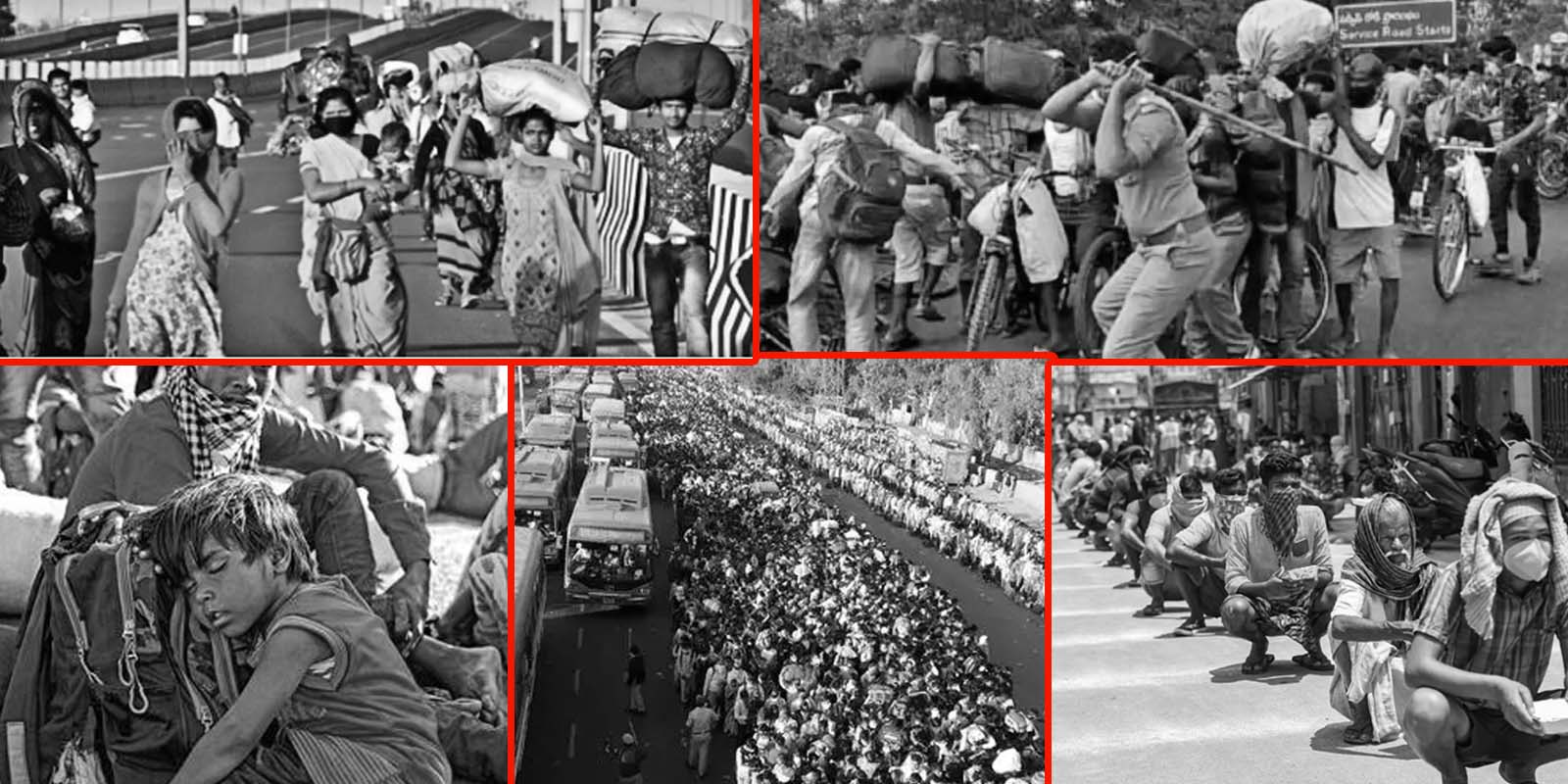
Shimla--The real competency test for the Nation isn’t ordering lock-down – it’s coming out of it. Some of the questions facing us amid these crises are; How civilized we are as a nation during this time of scarcity and fear? Are we helping the poor and needy or are we allowing them to be disproportionately impacted by this lockdown? Do we have adequate shelter homes for Migrant workers? Do we have enough food and transportation arrangement for them? Did our Government and administration use this expensive time of lockdown to prepare to “test and track” infected individuals, make provision for providing masks to the population, build isolation facilities, and other required medical facilities? These questions are haunting our nation in the present and will haunt us in the future too.
In this series of articles, we are discussing the role that judiciary has played during the time of this crisis. We have already gone through three orders of the Patna High Court.
Also Read: Response of Judiciary to India’s Migrant Crisis During Lockdown Part-I
Last month Madras High Court issued an order laced with emotion, something unusual for the courts. In a habeas corpus petition asking the government to produce 400 Tamil workers stuck in Maharashtra, a bench observed:
“One cannot control his/her tears after seeing the pathetic condition of migrant labourers shown in the media for the past one month. It is nothing but a human tragedy.
It is very unfortunate that those persons were neglected by all the authorities. The heart breaking stories are reported in the print as well as visual media that millions of workers were compelled to start walking to their native States with their little children carrying all their belongings over their head, surviving on the food provided by good Samaritans, as no steps were taken by the Governments to help those migrant workers.
..it is a pity to see the migrant labourers walking for days together to reach their native places and in the process, some of them had lost their lives due to accidents. The Government authorities of all the States should have extended their human services to those migrant labourers.”
In another case, the Andhra Pradesh High Court cited disturbing news reports to order the state government to take specific measures under seven different heads, including medical, transportation and food.
The court began the order thus:
“This court notices that the labour who have left their ancestral homes and villages and moved to the cities for better livelihood to ensure that all of us live in comfort are on the roads today.
If at this stage this court does not react and pass these orders, this court would be failing in its role as a protector and alleviator of suffering.”
The Karnataka High Court has directed the governments to decide on paying the transportation cost of workers going back to their villages and towns. It reminded the governments of the huge contribution the workers have made to the country’s development, insisting that the executive should come forward to help them at a time when they have lost their livelihoods.
TheDelhi High Court has also taken up this issue and has sought the response of the governments. Further, it has asked the government to take “all care” for repatriation of migrant workers, as and when they approach their concerned nodal officer and has directed
“So far as restoration of helpline number is concerned, we direct the Delhi government to ensure the uninterrupted working of their helpline number so that people may approach the Nodal Officers through the helpline numbers. The very purpose of helpline number is to help the people and, therefore, the same must be functional.”
The Gujrat High Court also took up the matter Suo Moto and observed:
“Everyday hundreds of migrant workers with children are seen in different parts of the state, more particularly on the highways. Their condition is pathetic. They are living in the most inhumane and horrendous conditions. As we have observed earlier, although all necessary steps are being taken by the state government, more modalities need to be worked out at the earliest to ease the suffering of the people at large.”
In another case the Uttrakhand High Court took notice of the Report filed by District Legal Services Authorities which stated that;
“…quarantine centers which have been established at Village level are the worst of the lot.”
No facilities in these centers to provide food to the inmates. Food is being provided by the villagers and the family members of the inmates.
In many of these quarantine centers where the inmates are more than 20 to 30, there are only 1 or 2 toilets. What is most shocking is that the hygienic condition of these toilets is also extremely poor.
Apart from this, many of the toilets which are in urban areas are in bad conditions, as these toilets are not being cleaned regularly.”
The Court directed the Secretary, Health and the Secretary, Disaster Management, Government of Uttarakhand, to pass appropriate orders to District Magistrates so that their Order dated 4th May 2020 be implemented in letter and spirit and so that there are enough of funds with the “Gram Sabhas” to manage and run these quarantine centres. Secretary, Health, Government of Uttarakhand and the concerned District Magistrate were directed to remove all the shortcomings in these quarantine centres.
Court also observed,
What is absolutely necessary is to maintain the quarantine centers at village level, for which proper funds be provided to the “Gram Sabhas”, as contained in the Government Order dated 04.05.2020, for which there has to be a proper coordination between District Magistrates and the panchayat level officers and the elected representatives of the people.
Matter be listed on 17th June 2020. [Sachdanand Dabral v. UOI, WP (PIL) No. 58 of 2020].
In another case, the Allahabad High Court ordered the State Government to ensure that persons who have completed their quarantine period be released from the Quarantine Centres provided they have tested negative. The Order stated;
‘Persons, who have completed their quarantine period and have tested negative can not be further detained in the Quarantine Centers against their wishes. It would be in violation of personal liberty under Article 221 of the Constitution of India.’
The Bench also directed the Chief Secretary, State of Uttar Pradesh to set up a three members committee in every district to ensure smoother, greater and more effective functioning of the Quarantine Centers.
(The post was first published in https://lawumbrella.wordpress.com/ )
(To Be Continued)
HW Community
Video of Child Trying to Wake up His Dead Mother- Court Takes Cognizance
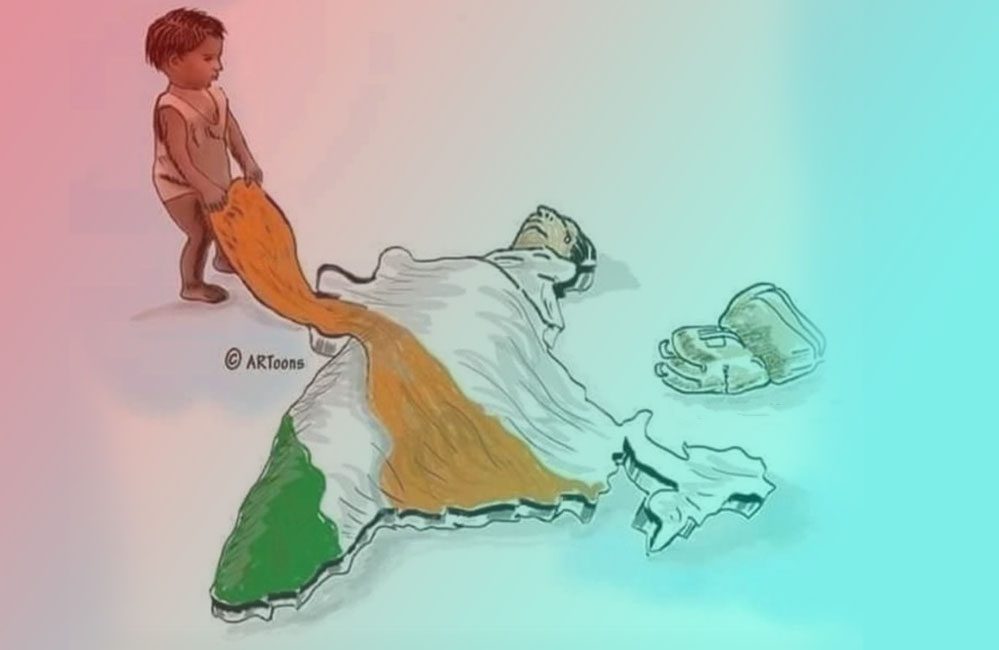
Shimla-A Division Bench headed by Sanjay Karol. CJ., had taken suo motu cognizance of a news article of the newspaper Times of India dated 28th May 2020 wherein an item reads as “Video of a child trying to wake up his dead mother goes viral.”
Justice S. Kumar invited the attention of Chief Justice of the Court to a newspaper article wherein the portion talks about a “Video of Child trying to wake up his dead mother goes viral.”
A video of a toddler trying to wake up his dead mother lying on a railway platform has gone viral on social media. The child can be seen removing a shawl covering his mother’s body.
The Bench stated if the items as stated in the news report are correct of which it has no reason to disbelieve. This warrants intervention in exercise of jurisdiction under Article 226 of the Constitution of India, taking suo motu cognizance of the said news item.
Bench laid the following issues for immediate attention:
-
Whether the postmortem of the dead-body was conducted? If yes, what was the cause of death? Did the lady actually die of hunger?
-
Was she travelling alone with her sibling ? If not, who all were her companions,
-
What action stands taken by the law enforcing agencies,
-
Were the relatives of the deceased informed of the incident,
-
Were the last rights of the deceased performed as per the custom, tradition and the instructions issued by the government, and
-
Above all who is now taking care of the children/sibling(s), who unfortunately lost their mother in these times of distress.
Bench before giving any order directed Additional Advocate General-IX to obtain instructions on the above issues.
The AG stated that the news report is partially incorrect. Deceased was mentally unstable and had died a natural death during the course of her journey. District Administration facilitated by providing an Ambulance up to the place of destination. The orphaned child is in safe custody and guardianship of the sister of the deceased.
Further AG stated that even though the child is safe and secure, yet he shall personally pursue the matter with the authorities who would again reach out to the family, enquiring any need of assistance.
The matter was again taken up on 3rd June and the following order has been passed:
Our concern, as indicated in earlier order dated 28th May, 2020, have not been adverted to and as such, as prayed for, we grant three days’ time to the respondents to file an affidavit. Let needful be done on the affidavit of the Additional Chief Secretary, Department of Home, Government of Bihar.
The matter is now Listed for 8th of June, 2020.
(The post was first published in https://lawumbrella.wordpress.com/ )
HW Community
Academic Merit of “Doctors” Must Reckon Services Rendered for ‘Common Good’
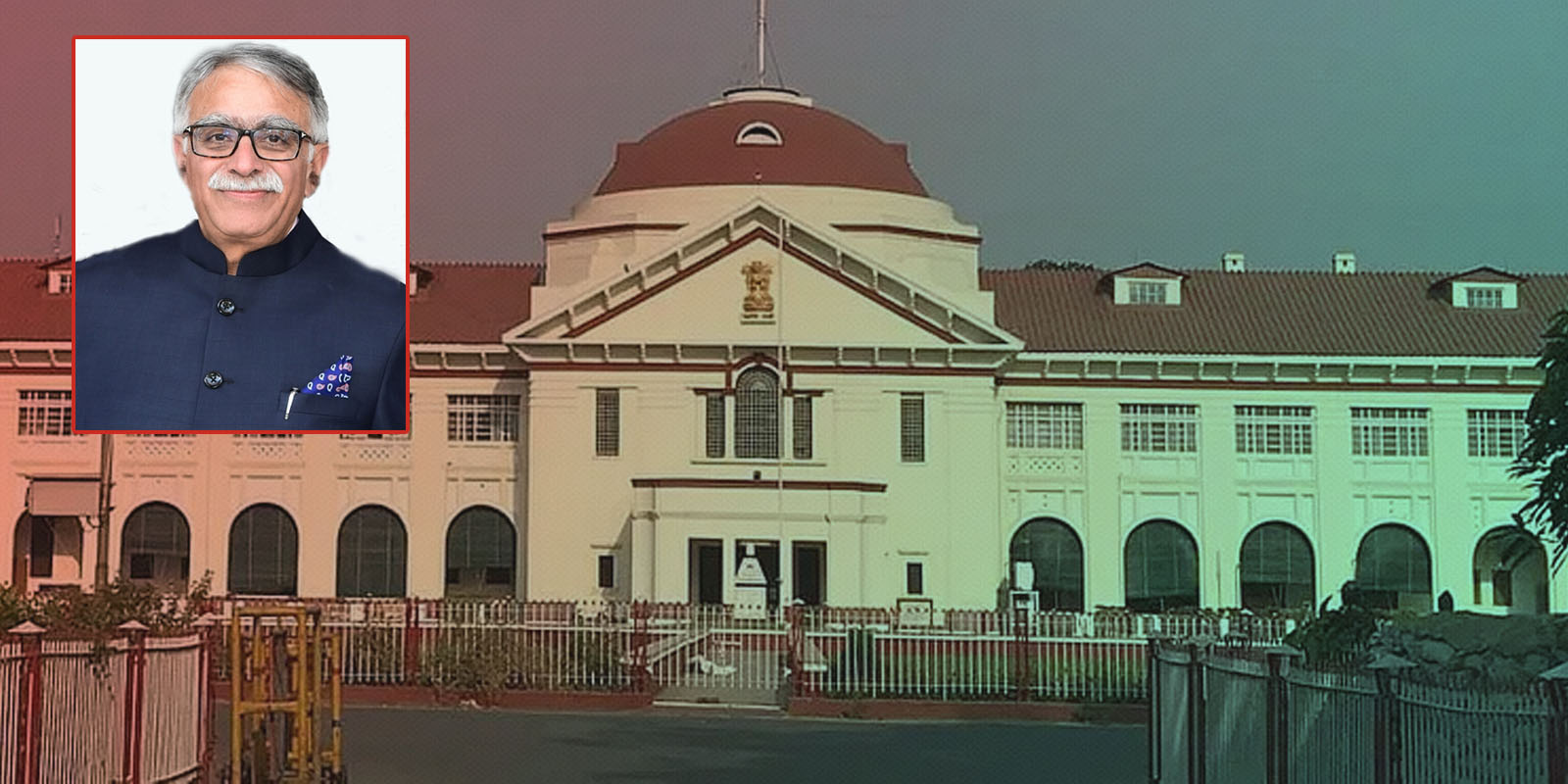
Shimla-For securing ‘Right to Health’ and medical facilities by ensuring an adequate number of doctors in the rural areas, an important order has been passed by the ‘Patna High Court’ in the current situation of a Pandemic. The Order is in line with judiciary’s endeavour to fulfil its obligation towards securing social justice for the poor and especially for the people living in rural parts of our country.
The Court has essentially said that to determine the academic merit of (Doctors) candidates, merely securing high marks in NEET is not enough. The academic merit of the candidate must also reckon the “services rendered for the common or public good.” Having served in rural and difficult areas of the State for one year or above, the incumbent having sacrificed his career by rendering services for providing healthcare facilities in rural areas deserves incentive marks.
A Division Bench comprising of Chief Justice Sanjay Karol ordered,
“The Chief Secretary, Government of Bihar shall, with the normalization of the of the current Pandemic COVID-19, ensure that vacancies in the rural/ remote/ difficult areas are filled up to the maximum extent possible, either by transfer or expediting the process of recruitment.”
The court took notice of the fact that in the state out of 11645 sanctioned posts of doctors, 8768 were lying vacant, out of which 5674 fell in the difficult/remote/rural areas. And despite the same, Government chose to not grant incentive of weightage in marks in NEET test, to the doctors posted in these areas. It went on to observe that the State Government is “neglecting” rural areas by taking these measures and catering to ‘vested interests’ by only posting the majority of the doctors in urban areas.
The Court directed the concerned authorities to redraw the merit list strictly by the law which in the instant case were ‘two notifications’ issued by the State. The said notifications granted benefit for service in rural areas but was not being implemented.
In the stand taken in court, the State had justified its decision of not granting the above benefit stating that “the merit would stand compromised and would adversely affect the in-service doctors posted at urban areas.”
However, the Division Bench disagreed, stating;
“Can a Welfare State even adopt such a stand more so in the absence of any plea or material to indicate absence of doctors or higher percentage of vacancy of the posts in the urban areas?”..
…”Incentivizing posting of doctors/medical staff in the specified areas can only be in public interest and for public good and not the other way round. Under the Constitution all power must be exercised to subserve public interest, for public good and for a public cause. If only such benefits are accorded would the Doctors voluntary opt to serve the poor, the needy, the deprived and the marginalized ones living in the remotest corner of the State.”
The Division Bench opined that if the State Government has found that circumstances warranted the need for such incentives, “then the State could not and should not deny such incentive.”
“Undoubtedly discretion of according benefits, vests with the Government, but then, its exercise has to be based on some rational and not in an arbitrary and capricious manner. There is no logic of depriving the doctors posted in the rural areas of such benefits.”
The Court went on to pull up the Bihar Government for having admitted, through notifications issued in 2013 and 2014, that there were difficult/ remote areas in need of doctors on the one hand while denying to provide incentives to fill in these vacancies on the other.
“Strangely, if not collusively, it has taken a specious plea of interpreting such a Notification limited only to the identification of areas in terms of the Regulation and not taking a decision conferring benefits in terms thereof. Such a stand is both immoral and illegal.”
“The power to grant incentive is discretionary, but then having done so, State cannot be allowed to turn around and contend to the contrary, notwithstanding as to whether such benefit was neither claimed nor conferred upon any individual. Mere non-enforcement of a right by an individual or its non-conferment upon by the State would also not be a reason for the State to adopt such a dubious plea.”
The Court proceeded to dismiss the State’s appeals and issued the following directions:
- All candidates who have participated in the selection process, including the writ petitioners and are otherwise eligible, would be entitled to the benefit of 2013 and 2014 Notifications issued by the Government of Bihar;
- Provision in the prospectus to the contrary is held to be illegal and void
- The Bihar Combined Entrance Competitive Examination Board shall redraw the merit list strictly in accordance with law by granting benefit of 2013 and 2014 Notifications after accounting for the certificates/proof of eligibility, for grant of incentives in terms of Regulation 9(IV) issued by the MCI.








 Home Decor Ideas 2020
Home Decor Ideas 2020